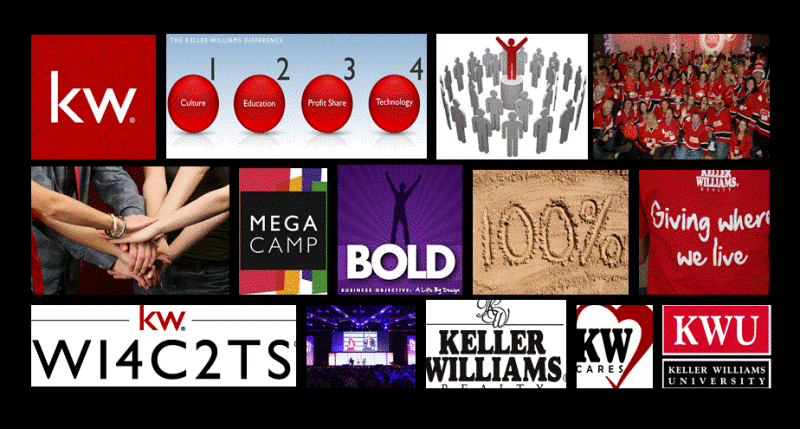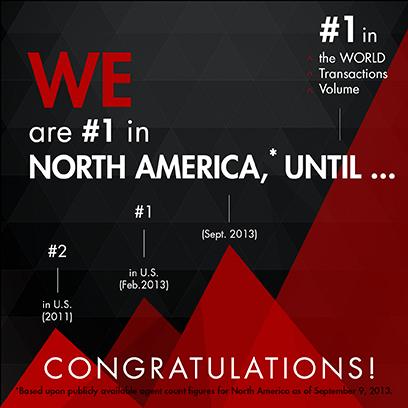Provided By: sem-group.net
The way we communicate on a daily basis has changed
radically over the last ten years. In our ever changing world of communication,
social media is what’s in vogue. Everywhere you turn you can’t escape it
whether it is Facebook, Twitter, Google Plus, Linkedin or one of the many
others that are cropping up daily. Social media is a way of keeping in touch
with the world around us just like reading the daily newspaper used to be. How
many people actually sit down and read a newspaper cover to cover anymore?
Probably not nearly as many as there were going back even five years ago. How
we deliver news is no longer the same.
With new forms of communication, come new rules of the game.
While social media is an information delivery mechanism, it is also a way of
socializing as well. Those that are really good at social media will tell you
being “social” is what matters most. Building relationships is a big part of
what social media is about.
REAL ESTATE AGENT SOCIAL MEDIA FAIL
There are countless industries that are really lacking when
it comes to social media skills and Real Estate has to be right up there at the
top. Having been a Massachusetts Realtor for the past twenty six years, I was
immediately intrigued when social media started to catch on. This new way of
being able to capture an audience fascinated me.
In fact I was one of the first Realtors in Massachusetts to
have a Real Estate blog. Seeing some immediate success only enhanced my desire
to use social media as it should be used. One of the best ways to do that was
of course to emulate what other successful people were doing. By trial and
error I could see that those that were having the most success followed some
very simple rules of etiquette. They were not necessarily in the Real Estate
industry but clearly had a grasp on making it work for them.
Some of the common denominators of success include thinking
of social media as a way to form successful partnerships with others by
providing information that could help them learn, laugh, think and possibly
reciprocate. Those that do social media well are givers not takers. They do not
look at social media as an advertising billboard. The it’s “all about me”
mantra does not work well in social circles.
Real Estate agents unfortunately are some of the worst
violators of many of these simple social media skills. There are many popular
social media channels that Real Estate agents are using improperly. I am going
to illustrate some of the more common social media blunders below and hopefully
if you are a Realtor reading this you will adjust your thinking. It is also
certainly possible you are not even in the Real Estate industry and have made
the kind of mistakes illustrated below.
Facebook Social Media Fail
Facebook has to be one of the top social media sites for
Real Estate agents making silly blunders. Social media failure here comes in
what can best be described as SPAM! One of the more popular Facebook features
is the ability to invite people to an event. This of course is terrific if
there happens to be a local event that those who ARE LOCAL to the area will
want to attend.
A good example of the proper use of a Facebook invite would
be a band asking those in their local contacts to come check them out. Using
Facebook in this manner is a big win for the band to get the word out and also
great for those on the invite list who may enjoy good music.
A Facebook invite however is not for your entire list of
Facebook friends! I can not even tell you how many times a week I get the most
silliest invites from other Real Estate agents. Hey Bill please come to my pancake
social next week in California. Sorry Jeff I am busy selling homes and will not
be able to make it. While I am sure the pancakes will be delicious, I won’t be
flying from coast to coast just to try them.
Kids birthday parties are another Facebook failure that
agents just love. Hey Molly the Realtor I am sure your daughters birthday party
at some Virginia bowling alley is going to be a blast but Bill the Realtor from
Massachusetts won’t be able to make it. Seriously folks it doesn’t take that
much longer to invite people who will want to attend your event. Do you know
how absurd you look when you don’t think about your actions in social media?
Guess what happens after people get tired of constantly
seeing your foolish invites? If you guessed people hit the blocked button it’s
Bingo for you! The thing is you will never get a notification that you are
blocked it just happens. Obviously this is not something you want!
Another thing that Realtors love doing on Facebook is
boasting about how busy they are. It goes something like this “OMG I am so busy
out showing homes for the third time this week blah blah blah.” A quick check
of the agent boasting how busy they are reveals they have sold 5 homes all year
and it is September. Please if you are going to talk about how wonderful you
are doing, at least have the stats to back it up! Other people certainly will
and show your competitors to boot.
Google Plus Social Media Failure
Google plus is the newest social media site on the scene and
rapidly becoming one of the most popular. One of the neat things about Google
Plus is how you are able to create “circles” for those that you follow. A
circle is just another name for a category or group of people. If you are a
Real Estate agent you could have circles for a number of things including other
Realtors, family and friends, people who share an interest and any number of
other possibilities.
What is really neat about Google plus is that not only can
you share something “public” which will put your post into anyone’s stream who
happens to follow you but also directly to a circle as well. As an example
let’s say I want to share a fantastic post about why Realtors should claim
Google authorship. It would make sense if I had a group of Realtors I knew well
and interacted with daily, they may want to see a helpful article like this.
Google plus allows me to send this directly to them. Since those in my circle
know me, it is not unusual for them to get notified of a post I have created.
You could certainly call this an instant notification of content worthy of
viewing.
One of the ways sharing posts directly with someone in
Google Plus can be considered a no-no is when you do not know them. It is not
appropriate for one Realtor to send another Realtor their latest and greatest “share”
if they don’t know the person. Even worse is when a Realtor sends someone
outside of the Real Estate industry a direct posting.
It is really a poor assumption to think everyone wants to
read or look at what you have posted. There are tons of people who could care
less about Real Estate and don’t want to see pictures of the home you just sold
or what is happening in your town USA. So many Real Estate agents just don’t
get this. This would be akin to a dentist sending a bunch of Realtors pictures
of a cavity they just filled. Most dentists wouldn’t even dream of doing
something so stupid. Realtors on the other hand, make mistakes like this all
too often because they think of social media as one big advertising bulletin
board.
Linkedin Social Media Failure
One of the terrific features of Linkedin is the groups that
you can become a member of that regularly share great information within a
certain niche. Real Estate being no exception. There are quite a few Real
Estate groups where fantastic ideas for growing your business are shared. As a
Realtor looking to gain a new method to grow your business or finding some cool
new technology, some of these groups can be a great place to visit. This of
course is the case until some agent comes along and drops a bunch of his or her
listings into the site.
Groups on linkedin are NOT for Real Estate listings!
Seriously why on earth do you think someone in Massachusetts or anywhere else
for that matter would want to see your 3 bedroom Ranch in Oregon? THEY DON’T. A
professional group where you discuss ways to improve your business is not an
open invitation to SPAM your listing. This again goes back to the billboard
mentality that many agents have engrained into their head.
Unless you are marketing a Hollywood superstars property or
some other extravagant home owned by a famous millionaire nobody cares about
your dam listing. Stop putting listings into a professional Real Estate group
unless of course you want to continue looking unprofessional to everyone else!
Twitter Social Media Fail
Twitter is another place that some Realtors fail miserably
at. The problem here is that Realtors far too often just drop in content and
then don’t respond if someone has a question. The best example again is the
Realtor who will drop one of their listings into the site via a tweet and then
when they are lucky enough to get someone to respond it goes unnoticed.
The thing about social media is that you need to use these
sites daily if you expect them to work as intended. There is no point in
dropping a link into Twitter if you are not going to respond in a timely
fashion or at all.
If sharing your listings on Twitter is what your focus is
then I guarantee you have failed at this social media site. Twitter is for
providing great content that others can use. It is not about YOU! Your focus on
Twitter should be sharing valuable information that others can benefit from.
The content doesn’t necessarily have to be your own either. Sharing other
peoples articles on Twitter is what builds relationships and increases your
following!
Share Button & SEO Social Media Fail
Real Estate agents are notorious for using social media
sharing tools that are embedded into their websites as plugins to send their
content to various networks and then doing nothing else. Social media is about
being social! It is NOT about personal promotion. Stop dumping your content and
doing nothing else. Interaction and reciprocation is what makes social media
work! All of the social media sites mentioned above are tools to build
relationships with people. They are not link dumps! So many Realtors confuse
the benefits of social media by thinking it is some kind of exercise in SEO.
In fact one of the more awkward things that you see from
Realtors is posting their website address like this —>
http://www.sellmyhomeinmetrowestma.com <—- as part of a signature in various
social media sites when they make comments like there is some kind of magical
SEO benefit for doing so. This is incredibly stupid and does nothing for you
other than making you look like a buffoon.
Most Realtors know very little about SEO. This is
illustrated very clearly when those in the industry add widgets from sites like
Zillow and Trulia to their websites effectively helping those sites outrank
agents for their own local keywords. For those that don’t understand what I am
talking about here is an explanation of how Realtors help Zillow and Trulia
gain better web position. SEO is actually a vital part of any Real Estate
agents marketing arsenal. There is no doubt what so ever that having your
website appear on the first page of Google for competitive Real Estate search
phrases is going to help your business!
If you are a Real Estate agent reading this or anyone else
in business for that matter, I hope some of what you have discovered here about
social media to be an eye opener. Keep in mind that successful use of social
media starts with engaging others. Provide great content of your own and share
others content as well. Make sure you reciprocate and say thank you to those
that help you become more visible. Do these things and you will see the long
term benefit of business growth!




